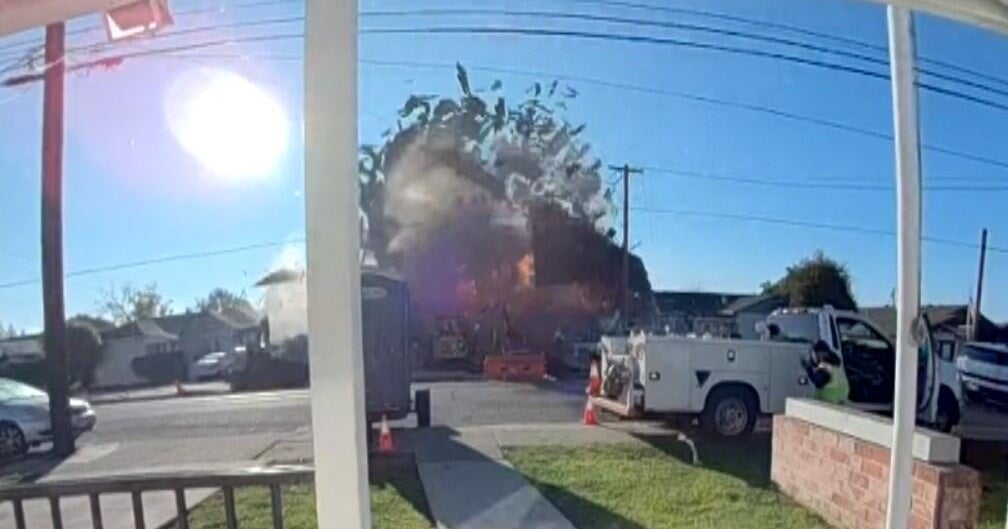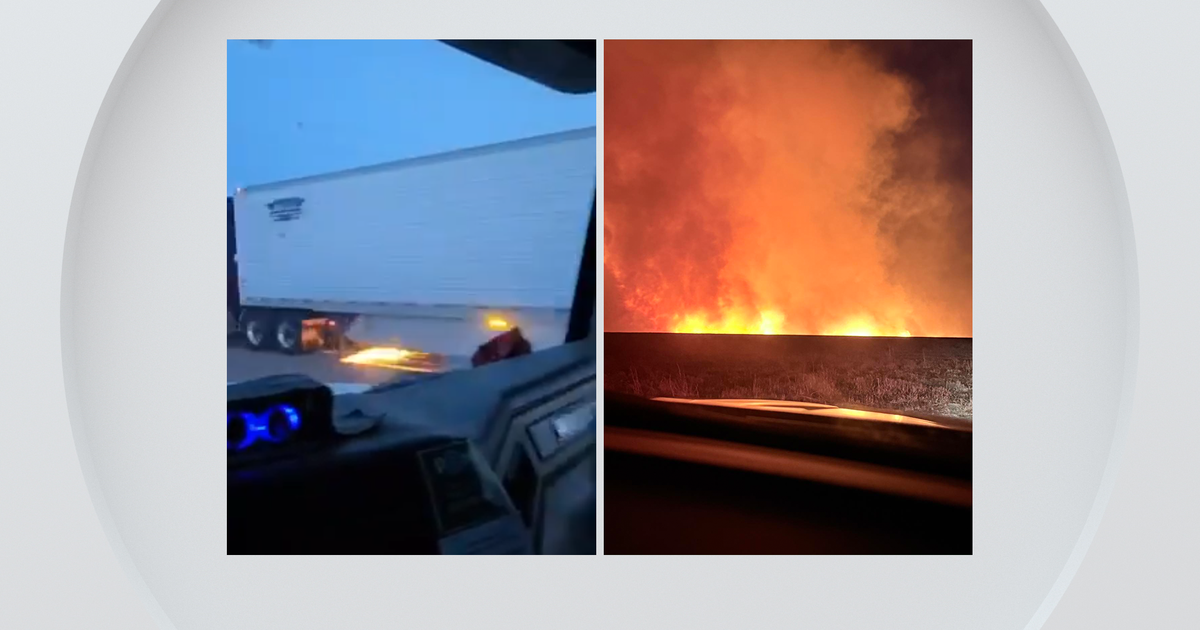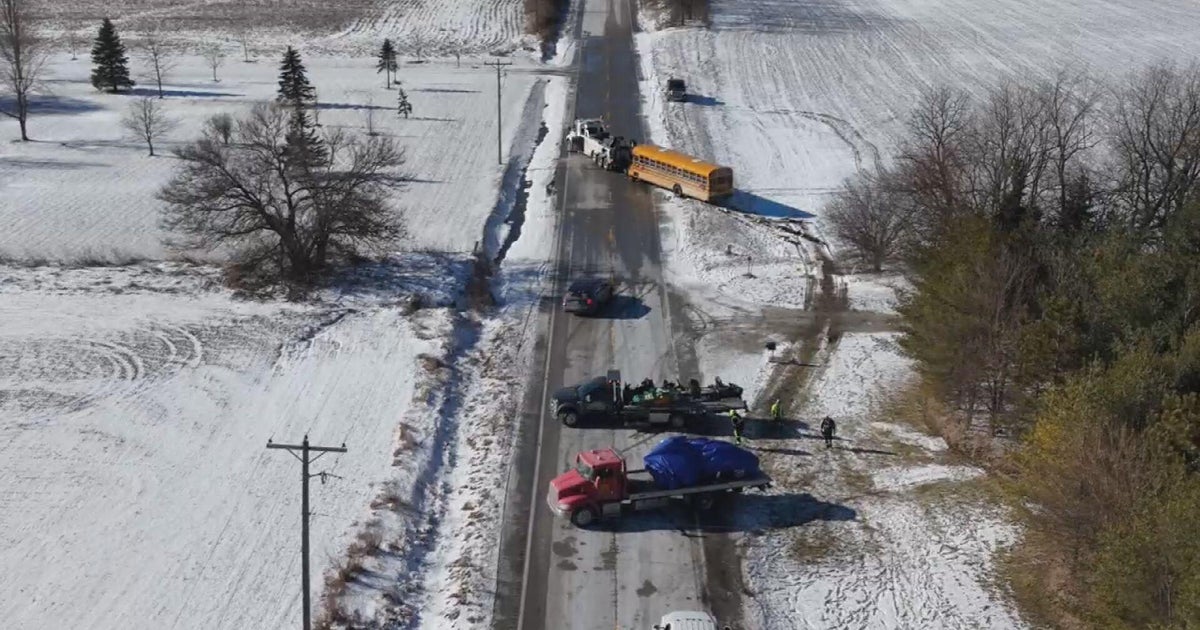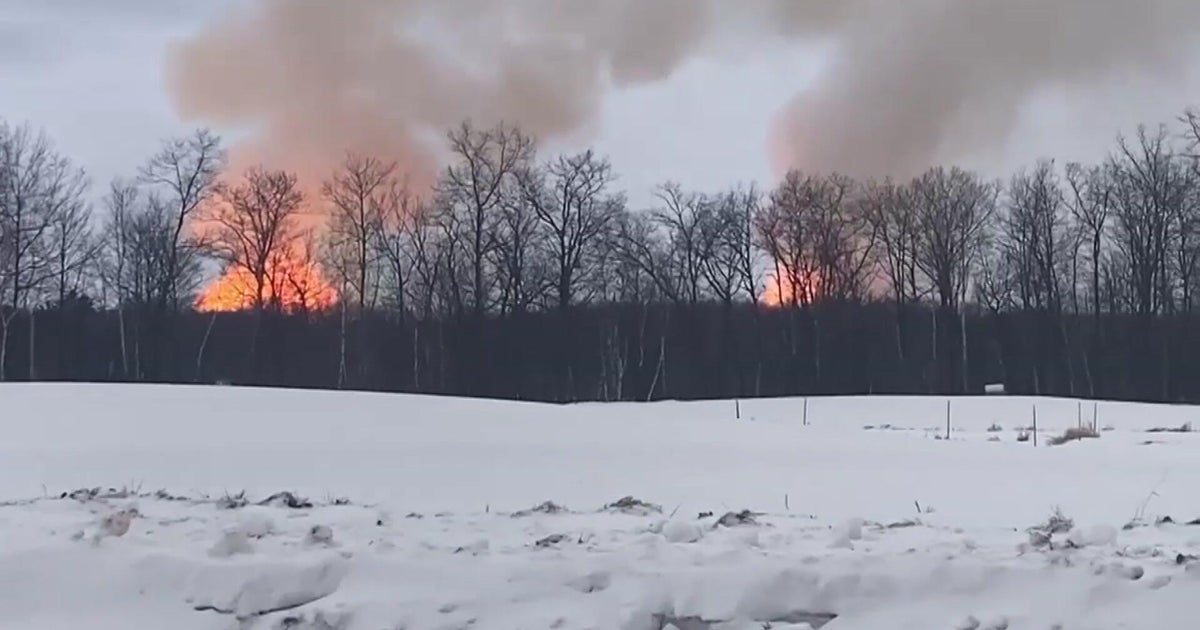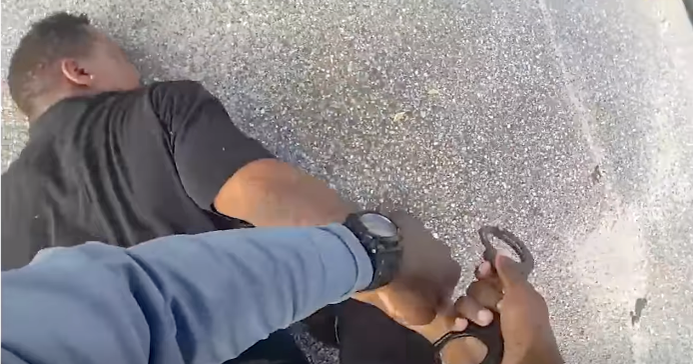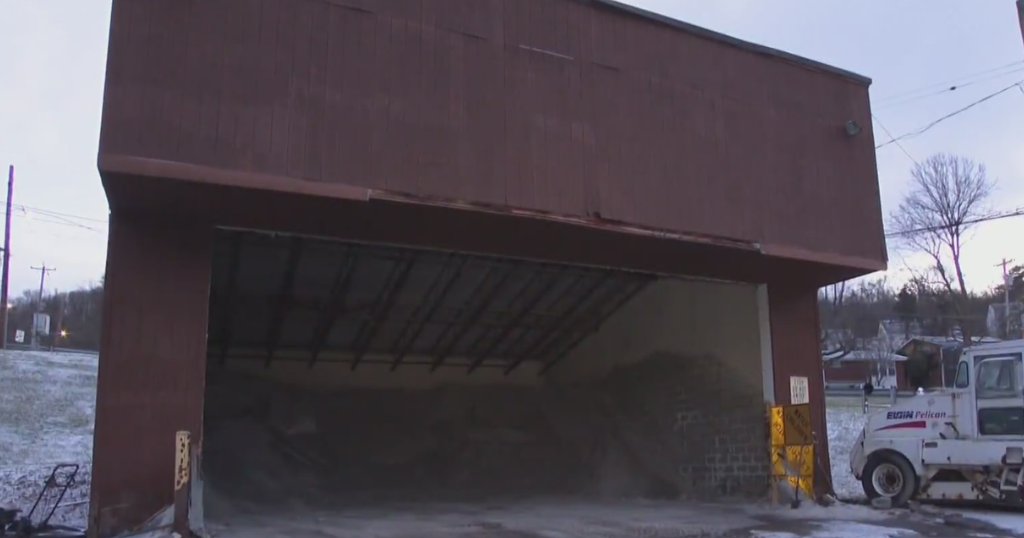N.J. Drivers Rush To Fill Up Before Gas Prices Spike Again
MONTVALE, N.J. (CBS 2) -- Gas prices are pumped up across the Tri-State Area, and there's seemingly no end in sight.
The average price in New York is $4.04 per gallon, while drivers in Connecticut are paying $4.10 per gallon. In New Jersey, gas now costs drivers $3.72 a gallon.
On Thursday in Montvale, drivers were lining up at area gas stations to fill up before the prices soar again. With so many drivers queuing for gasoline, one would think they were giving money away at the Lukoil Station – and in a weird way, motorists told CBS 2's Scott Rapoport, they were.
"I've never seen it this long," one driver said.
"Oh, it's crazy, but what are you going to do?" said another.
With gas prices along the Garden State Parkway and New Jersey Turnpike set to increase again on Friday, many drivers were gassing up on Thursday as a way to keep a few more dollars in their wallets.
"The gas changes on Fridays on the Parkway, so we always come on Thursday to try and get it," one resident said.
Drivers said that while the prices were high, they'd be even worse in the coming days – it's a tough pill to swallow.
"I make sure to get it before Friday, when they jack it up," Vincent DiSalvio, of Manahawkin, said.
"We're spending $150 to $200 a week on gas, going up and down the Garden State Parkway – it's ridiculous," another driver said.
Drivers said that's what it's come down to – that skyrocketing gas prices have become a budget-busting expense – and so they wait on line to spend today, knowing that tomorrow will be worse.
"You have to pinch where you can, do the best we can, just ride it out," one resident said.
CBS 2's Sean Hennessey put several fuel- and money-saving tips to the test with Bob Crevaux, who has been working on cars for more than 40 years.
One of the first tips people have heard about gas is that you should fill up in the afternoon, because the cooler temperatures make for denser gas – and more bang for the buck.
"That's true, but I think there are things more important that that," Crevaux said.
Air conditioning can eat up as much as eight percent of drivers' fuel, so that's something experts said should be avoided.
"The air is a big drainage on the engine," Crevaux said.
Crevaux also said it's important to make sure tires are properly inflated and aligned, which can improve gas mileage by three percent.
If a tire is off a bit, Crevaux said, "that tire is actually scuffing down the road, a little more resistance going on there, naturally it's going to consume more fuel."
Crevaux said speed can also kill your gas efficiency, as gas mileage decreases rapidly once the odometer hits 60 miles per hour.
"It's working that much harder, the RPMs are up, wind resistance at a higher speed," Crevaux said.
Driving gently also has benefits, Crevaux said, as abrupt starts and stops can lower gas mileage by five percent. A tuned engine can increase gas mileage by four percent, while 100 pounds of junk in the trunk can drop it by another three percent.
"Car's heavier – it's going to require more fuel to move that load," Crevaux said.
Even a cleaner car is more fuel efficient.
"A vehicle like this, that's waxed – naturally it's going to cut through air," Crevaux said.
Drivers always have the option of buying a hybrid, but AAA said that comes with a big question – how long it will take to recoup your investment.
"It might be that you never recoup it, but you will be saving gasoline," Steve Rajczyk, of AAA North Jersey, said.
